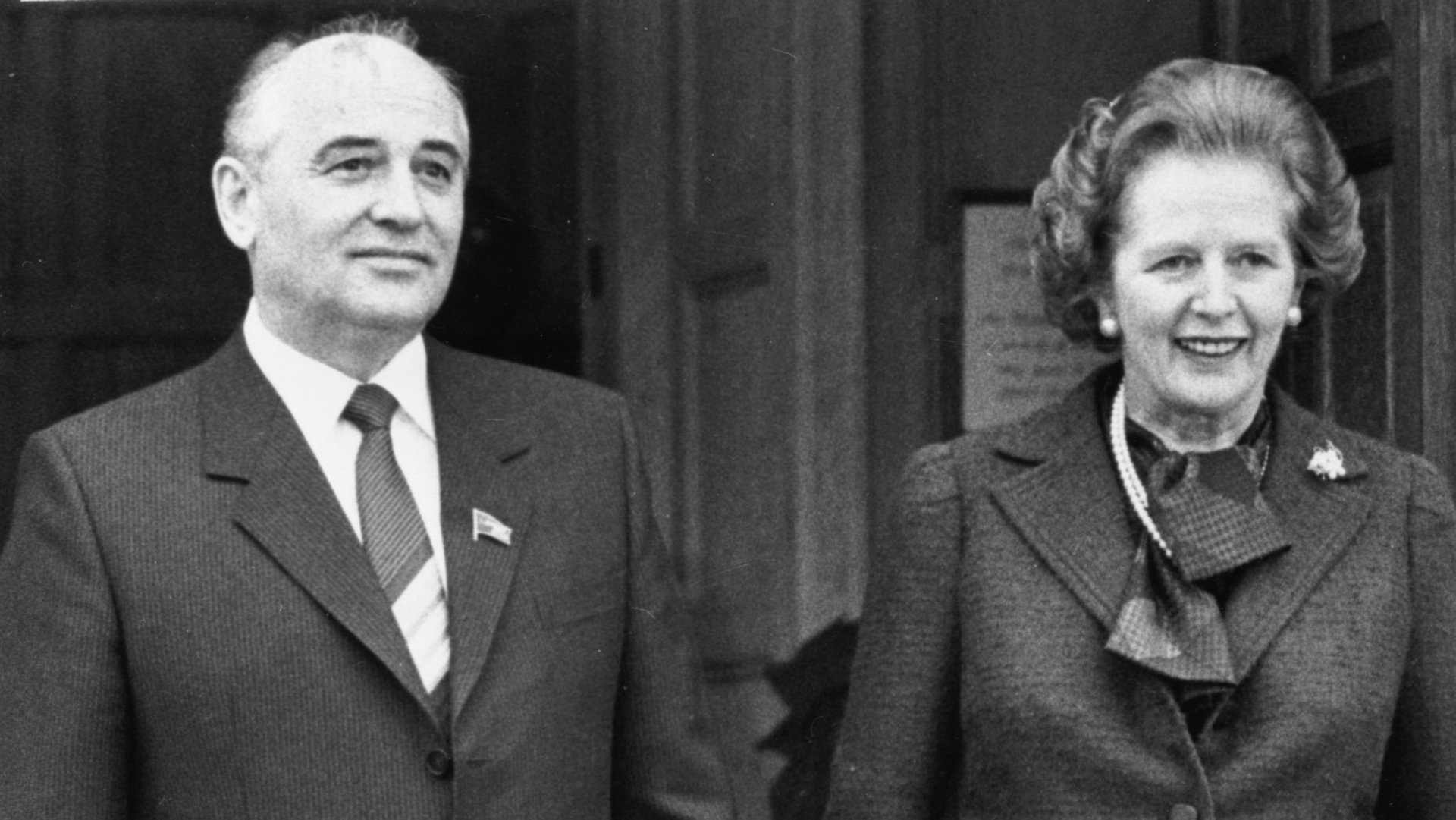Secret papers reveal Margaret Thatcher feared Germany’s power and looked to Russia as an ally
The power that a unified Germany might possess over Europe after the fall of the Berlin Wall in 1989 seemed to be of serious concern to former British prime minister Margaret Thatcher. Previously secret government papers declassified on Dec. 30 showed that, to the alarm of US diplomats, Thatcher thought the Soviet Union could act as a “counter-balance” to a united Germany.


The power that a unified Germany might possess over Europe after the fall of the Berlin Wall in 1989 seemed to be of serious concern to former British prime minister Margaret Thatcher. Previously secret government papers declassified on Dec. 30 showed that, to the alarm of US diplomats, Thatcher thought the Soviet Union could act as a “counter-balance” to a united Germany.
The National Archive released a huge number of files from the UK prime minister’s office and Cabinet Office from 1989 and 1990. Many of the papers cover plans for Germany’s reunification. It was known at the time that Thatcher didn’t have a good relationship with Germany’s then-chancellor, Helmut Kohl.
One of the files contains a memo to Thatcher recounting her call with US president George H. W. Bush (pdf, p.270) in early 1990 and how it was perceived by the Americans. Apparently Bush was “very worried” by German-British relations and particularly troubled by the suggestion the Soviet Union could be bought into an entente cordiale, because the US considered the Soviet Union to be “a deeply hostile power.” Bush “could not conceive how you could think of the Russians as possible allies against Germany,” Charles Powell, a foreign policy advisor, wrote in the memo to Thatcher.
Powell said that the US must have misunderstood and that Bush mustn’t have “grasped the sophistication” of her points. What Thatcher said and what Bush interpreted were pretty similar, though: Thatcher said the Russians shouldn’t be isolated in discussions about Europe’s future and that the Soviet Union would be the only country of equivalent size to a united Germany and could act as a political counterweight.
Still, the call highlighted to Powell the need for better relations with Germany’s Kohl. Separate papers released in 2009 from the foreign office already showed the extent of Thatcher’s opposition to German unity. She had a better relationship with Soviet leader Mikhail Gorbachev (pictured) and Powell notes in the more recent papers that Kohl “sees slights in almost everything” the British did at the time.
The papers also revealed that Thatcher held a meeting with historians to discuss the psyche of the Germans in March 1990. They discussed some the negative characteristics they felt Germans had, including “insensitivity to the feelings of others, their obsession with themselves, a strong inclination to self-pity, and a longing to be liked.” These notes by Powell said the group concluded that no one had serious misgivings about Germany’s leaders at the time but they were still uneasy about the future.
Some aspects of British politics in 1990 are reminiscent of 2016. Thatcher resigned later that year, bought down by divisions in the Conservative Party about what the UK’s relationship with Europe should be. This year, David Cameron resigned over Brexit and his mishandling of the same divisions. Fear that Germany has too much control over Europe has also driven the backlash against further European integration today.
After Thatcher resigned she received an outpouring of support (pdf) from foreign leaders and dignitaries, the newly published papers reveal. The former British prime minister was known for reviving the “special relationship” between the UK and the US in the 1980s. One particular message stands out from Henry Kissinger. Powell passes on this message to Thatcher on Nov. 22, 1990:
Henry Kissinger telephoned me in a very emotional state about your decision to resign. It was worse than a death in the family. You were one of the great figures of modern times and nobody outside Britain—indeed nobody outside Westminster—could understand how your fellow Conservatives could have done this. He and Nancy send you their affectionate regards.